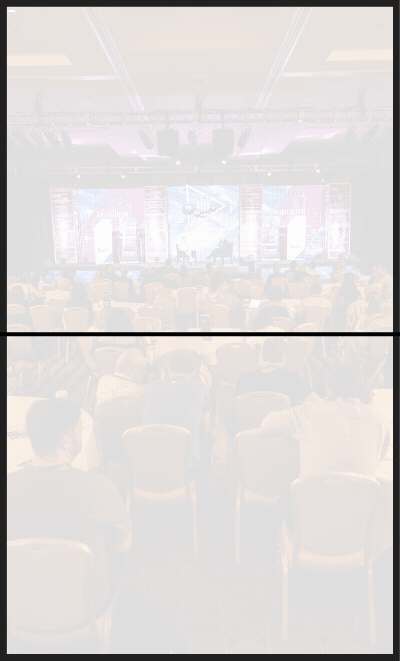To say that I didn’t know anything about podcasting technology when I started would be an understatement. But, like everything else in my life, I closed my eyes and jumped. Would the water below be shallow or deep? I guess I’ll find out! And hey, over a year later, I’m still here.

Once I did start my show, I read as many books about podcasting as I could, listened to podcasts about podcasts, and joined a few Facebook groups. I studied up on the advice from pros with years of experience. I spent many hours late into the night deciphering this new and confusing hobby. I stressed over technical problems or questions I had. Would anyone ever even listen?
Over time it dawned on me that there is no ‘right’ way of doing anything.
Each expert seemed to have “the way” to make it work. They all offered varying methods of producing, editing, and even speaking. Was there one proper procedure to follow, or could I just wing it? Why was I always second-guessing myself? I never knew if I was doing things the “correct” way or if I was just fumbling along with the world laughing at me.
Over time it dawned on me that there is no ‘right’ way of doing anything. Much like writing, there is much freedom in podcasting. Some truths based in common sense are ones all podcasters should try to adopt, but apart from those, we have the ability to make our show whatever we wish it.
Veteran podcasters want to help new ones. They are very happy to share experience and knowledge, and that’s a great thing. But not every vet does things the same way. If you ask for advice from a few, you will get many answers. Here are some of the most common pieces of advice that didn’t apply to my own experience.

“You should have a few episodes done before you publish your podcast.”
I published my podcast with just one episode. After reading a bit, I realized that I should have had three episodes, or five or 25, all depending on which source I was reading! Now after a year of doing my own, I tell new podcasters you only need one, but make sure you don’t miss a week. Consistency is key. I understand having a few ready, but 25? If you have six months of episodes ready, if those even make it to air, they’d be out of date, at least on my show.

“Sound quality is most important, focus as much of your time and money as you can here.”
Personally, as a podcast fan, I would rather listen to an independent podcast with lousy sound and interesting topics. Many of the perfectly produced, big-budget ones are generic and dull. When most of us start out, our sound quality isn’t perfect. One of the unique aspects of podcasts is listening to the evolution of a podcast’s sound to see how it improves over time. It’s enjoyable to follow the transition.

“Don’t start a show in an oversaturated genre with many professional podcasts already established.”
I’ve heard this often. And it’s not true. You can publish a podcast in a very popular market and get listeners if it has a niche take on the genre. Steer clear of doing what other podcasts are doing, and be as unique as you can. This is how new podcasts can find their way.

“Buy the most expensive gear you can afford.”

I’ve heard this gem a lot. Again, I disagree. If you can afford the top-line equipment, that’s spectacular, but you don’t have to. You can buy the lower end and gradually work your way up, depending on your budget. I’ve even heard good podcasts done from iPhones!
You can buy the lower end and gradually work your way up.
The truth is, though, it will probably cost more than you think it will. If you want to go all out, in addition to necessary costs like hosting and website, that’s up to you, but it is most certainly not mandatory.

“Don’t put your podcast on Patreon until you have at least 700 listens per episode.”
I’m not sure where these numbers come from. I have Patreon patrons, and I don’t get that many listens. Granted, I don’t have as many as someone with thousands of listens per episode, but there is no arbitrary number that says, “This is when you’re allowed to put a Patreon button on your website.” It’s a good idea to wait until you have a loyal base of listeners, and that may take a bit of time.

“Podcasters can start looking for sponsorship and/or ads if they have at least 5,000 listens per episode.”

That number per episode changes, depending on who is giving the advice. But this number doesn’t matter. If you want to put a bit of extra work in, you may be able to find advertisers for your podcast even if it only gets 200 listens per episode. Think of your core audience and the items or services they use in everyday life as it relates to your podcast.
You may be able to find advertisers for your podcast even if it only gets 200 listens per episode.
Put together an information sheet about your podcast, the date it started, samples of topics covered, guests, and email it to proposed sponsors. I only target sponsors of products I use myself, and I’m currently setting up a campaign with my newest addition. The first calls you make may feel weird, but it gets easier and you’ll get better at it. And your first sponsor will make you feel amazing!

I am grateful for all the help I’ve received from people. I learned so much since 2018 when the idea of starting a podcast was just a little seed waiting to sprout. Some of the common sense truths they’ve shared have helped me become a better podcaster. These include: Don’t worry about downloads, get your podcast out to as many podcast players and apps as possible, make every episode as interesting and well done as possible. It is invaluable information and appreciated.
But I know that no matter what advice I receive, I’m always going to interpret ideas with my vision, and as you find your way in this maze of podcasting, you’ll find your vision. Always remember that you are the only one who knows what that is and no advice in the world is going to replace your sight.



Join the Movement